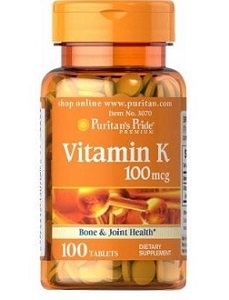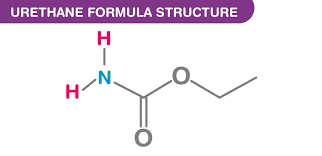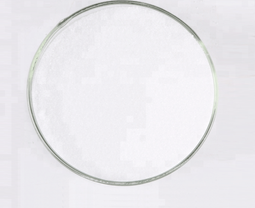Pharmacological effects of Vitamin K
Vitamin K is a vitamin found in leafy green vegetables, broccoli, and Brussels sprouts. The name vitamin K comes from the German word "Koagulationsvitamin."

Pharmacological effects
Several forms of vitamin K are used around the world as medicine. Vitamin K1 (phytonadione) and vitamin K2 (menaquinone) are available in North America. Vitamin K1 is generally the preferred form of vitamin K because it is less toxic, works faster, is stronger, and works better for certain conditions.
Vitamin K is most commonly used for blood clotting problems. For example, vitamin K is used to reverse the effects of "blood thinning" medications when too much is given. It is also used to prevent clotting problems in newborns who don't have enough vitamin K. Vitamin K is also given to treat and prevent vitamin K deficiency, a condition in which the body doesn't have enough vitamin K.
An increased understanding of the role of vitamin K in the body beyond blood clotting led some researchers to suggest that the recommended amounts for dietary intake of vitamin K be increased. In 2001, the National Institute of Medicine Food and Nutrition Board increased their recommended amounts of vitamin K slightly, but refused to make larger increases. They explained there wasn't enough scientific evidence to make larger increases in the recommended amount of vitamin K.
Preventing bleeding problems in newborns with low levels of vitamin K (hemorrhagic disease). Giving vitamin K1 by mouth or as a shot into the muscle helps prevent bleeding problems in newborns. Shots seem to work the best.
Treating and preventing bleeding problems in people with low levels of the blood clotting protein prothrombin. Taking vitamin K1 by mouth or as an injection into the vein can prevent and treat bleeding problems in people with low levels of prothrombin due to using certain medications.
Safety concerns
The two forms of vitamin K (vitamin K1 and vitamin K2) are LIKELY SAFE for most people when taken by mouth or injected into the vein appropriately. Most people do not experience any side effects when taking vitamin K in the recommended amount each day. However, some people may have an upset stomach or diarrhea.
Vitamin K1 is POSSIBLY SAFE for most people when applied as a cream that contains 0.1% vitamin K1.
Special precautions
Pregnancy and breast-feeding: When taken in the recommended amount each day, vitamin K is considered safe for pregnant and breast-feeding women. Don't use higher amounts without the advice of your healthcare professional.
Children: The form of vitamin K known as vitamin K1 is LIKELY SAFE for children when taken by mouth or injected into the body appropriately.
Diabetes: The form of vitamin K known as vitamin K1 might lower blood sugar levels. If you have diabetes and take vitamin K1, monitor your blood sugar levels closely.
Kidney disease: Too much vitamin K can be harmful if you are receiving dialysis treatments due to kidney disease.
Liver disease: Vitamin K is not effective for treating clotting problems caused by severe liver disease. In fact, high doses of vitamin K can make clotting problems worse in these people.
Reduced bile secretion: People with decreased bile secretion who are taking vitamin K might need to take supplemental bile salts along with vitamin K to ensure vitamin K absorption.
See also
Lastest Price from VITAMIN K1 manufacturers

US $0.00/kg2025-06-03
- CAS:
- 12001-79-5
- Min. Order:
- 1kg
- Purity:
- 98%
- Supply Ability:
- 1000kg

US $0.00/kg2025-04-29
- CAS:
- 12001-79-5
- Min. Order:
- 1kg
- Purity:
- 0.99
- Supply Ability:
- 1000kg


